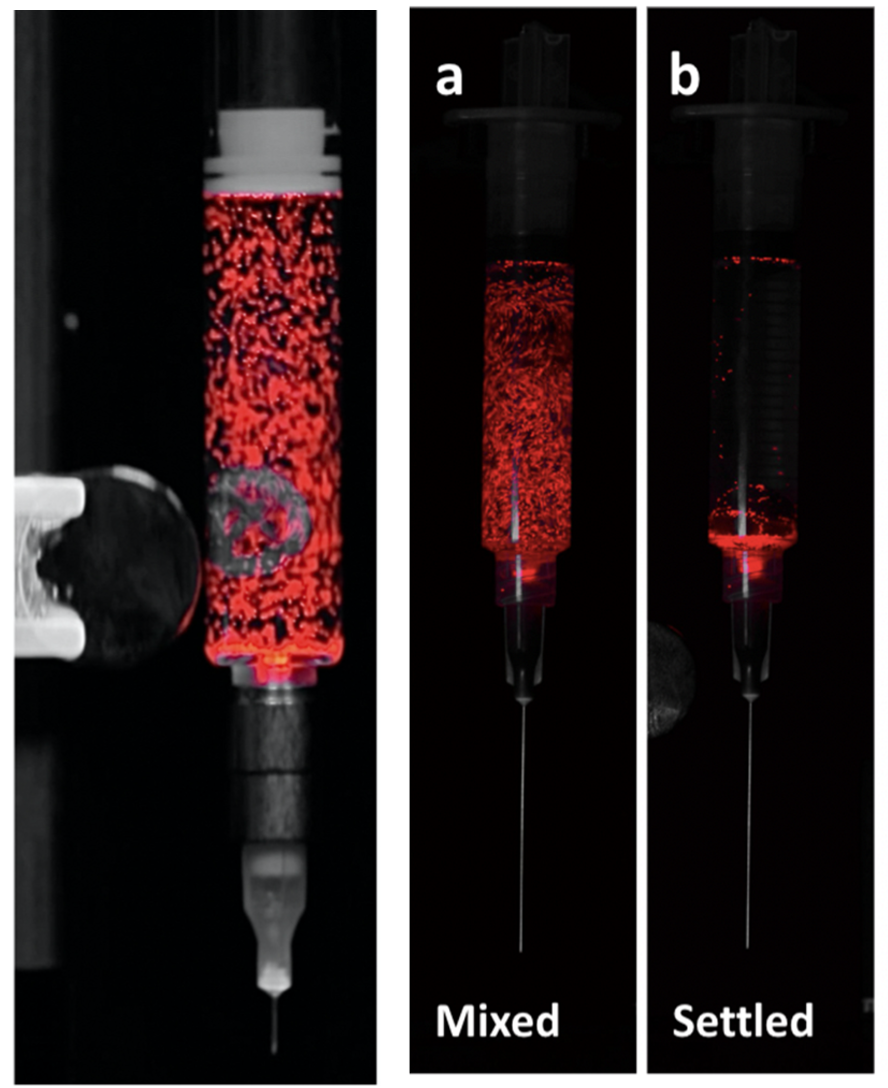Docket #: S23-259
Syringe Tumbler for Ink Resuspension (STIR)
Stanford Medicine researchers in the Mark Skylar-Scott Lab have developed "STIR" (Syringe Tumbler for Ink Resuspension), an in-syringe bioink cell mixing system with near-zero dead volume that virtually eliminates cell settling without impacting the usable amount of bioink, and improves print quality. 3D bioprinting of tissues and organs has enormous therapeutic and research potential, as well as in cellular agriculture and alternative food proteins. Bioinks are incredibly expensive, and the cells tend to settle in suspension and thereby create inconsistent prints. STIR actively mixes bioink cells in the syringe via an external magnet and internal magnetic stirrer to maintain ink consistency over time. The internal magnet is a soft ferromagnetic silicone truss-shaped tumbler that is collapsible with compression which minimizes dead volume as the plunger reaches the bottom of the syringe. This tumbler effectively & safely mixes cells in the bioinks with its linear and rotary motion, without significant impact to cell viability. STIR is an effective, economic, and ethical cell-laden inks suspension-creating tumbler solution for 3D bioprinting applications.

Prototype mixing tumbler demonstrating:
A) Cellular Mixing vs B) Settling
Image courtesy of the Mark Skylar-Scott Lab
Stage of Development
Prototype
Applications
- 3D Bioprinting & BioInks for:
- Research
- Medicine – printed tissues, organs, and other treatments
- Food Sector – cellular agriculture and alternative food proteins
Advantages
- Improved print quality with more uniform cell distribution via improved cell mixing
- More economical
- Reduced cell settling
- Near-zero dead volume and waste
Related Links
Similar Technologies
-
Purifying Human Pluripotent Stem Cell-Derived Liver Cells by Metabolic Selection S22-494Purifying Human Pluripotent Stem Cell-Derived Liver Cells by Metabolic Selection
-
Bioprinting Platform for the Fabrication of Assembloids S22-095Bioprinting Platform for the Fabrication of Assembloids
-
Gelation of Uniform Interfacial Diffusant in Embedded 3D Printing S22-099Gelation of Uniform Interfacial Diffusant in Embedded 3D Printing